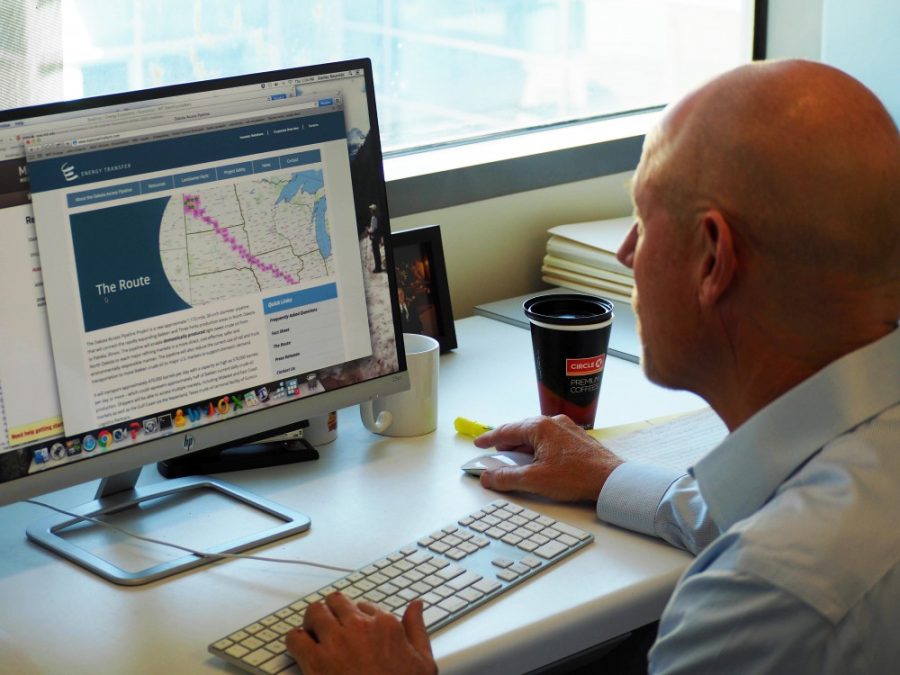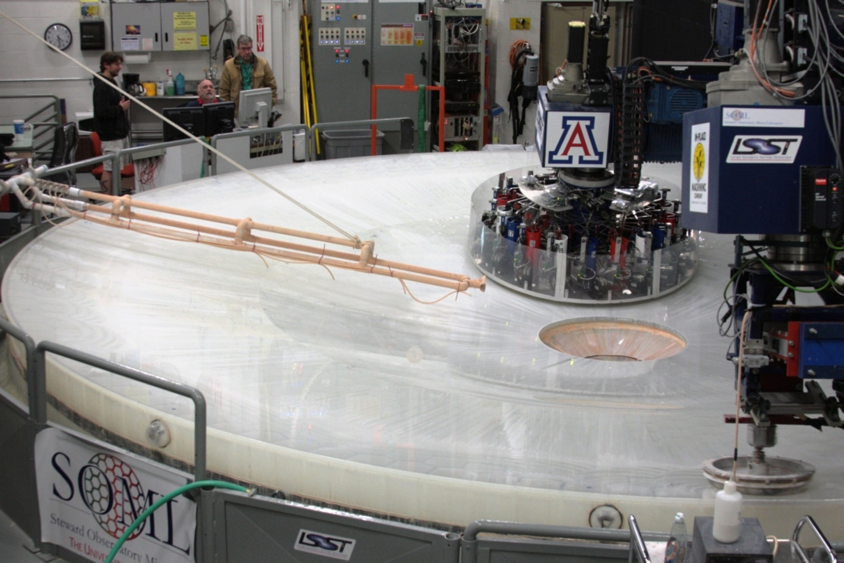The conflict over the Dakota Access Pipeline has ballooned into a complex social justice issue. But what are the basic facts behind the pipeline?
Here, economics professor Stanley Reynolds, economics assistant professor Derek Lemoine and associate professor of soil, water and environmental science Joan Curry answered questions about the underlying science of pipelines and pipeline economics.
DW: What impact would the pipeline have on the energy market?
DL: Pipelines are helpful for getting oil to market more cheaply, but that’s not a difference that we’ll see. It’s a drop in the bucket. There might be a small effect locally, if the oil was trapped, but there won’t be a change in Arizona.
SR: It’s hard to see the effect on oil prices, because a lot of that oil is already getting to market. There would be a modest effect—maybe a slightly lower cost of delivery, a slightly greater supply—it’s a fairly modest economic development project in the Midwest’s view.
What impact would the pipeline have on the local economy?
SR: As far as the U.S. labor market goes, if one thing doesn’t create jobs, something else will. Whatever investment numbers you come up with, you have to ask ‘where else would that investment go?’
What risks do pipelines pose?
DL: It’s hard to see which is riskier, a train or a pipeline. Train accidents are easier than pipeline accidents, but pipeline accidents do happen.
JC: Having a pipeline, if that’s what you want to do, is a pretty good idea—just the basic idea. In this particular place there’s a lot of factors. There’s always risks of spills and leaks. Since the pipelines are buried, it depends on where the water is specifically. There’s always a risk when you have a contaminating substance.
Would stopping the pipeline be a major environmental win?
SR: It’s not like the oil will stay in the ground if the pipeline isn’t built. The pipeline would be more efficient and would mostly be going to U.S. refineries. In my perfect world there would be a carbon tax and things to discourage the use of fossil fuels. It’s a lot to expect private developers to do.
DL: Well, pipelines can cause an uptick in drilling. It depends on what you care more about environmentally: Burning a little more oil or more risk to transport the oil by train.
JC: It’s more of an symbolic issue about which direction we’re moving in. It’s not so much that we’d see an increase in the amount of oil, it’s more that we’re trying to move away from oil. We have a lot of pipelines and we’re not seeing much in the news about pipeline accidents, but you have to take a stand somewhere.
RELATED: UA economists take a look at the all time lows in oil prices
What is the future of oil in the U.S.?
DL: The oil field in question probably only has between 10 and 50 years on it. It’s not clear what the policy will be moving forward, but we’re not going to be off oil anytime soon.
SR: Policy makers should take pricing for environmental damages into account. Government projects already look at the projected carbon cost before they build, and consumers are becoming more aware of that. The pipeline is just one piece of a big network.
JC: It’s going to be a while before we move away from oil.
How realistic are the numbers —such as employment, revenue and damage potential—put out by each side?
SR: The numbers tend to be unrealistic. Each side tends to exaggerate their claims. It’s complicated to sort out.
DL: There are ways to adjust the numbers. Both sides overstate.
RELATED: UA stands in solidarity with Standing Rock
Is there a parallel to the Keystone XL Pipeline?
SR: The stakes were a little higher with the Keystone pipeline, [which crossed the Canadian border]. Here, it’s just state boundaries. The states could step in and play a role, but there’s limited
federal jurisdiction.
JC: Yes. There are a lot of other pipelines in that general area already, but you have to look at track records. There are regulations about how to do things, and companies are just trying to be more efficient.
What would cleanup look like in the event of a spill?
JC: Now, we use natural attenuation. You keep it from going anywhere, then use microbes to accelerate natural processes, to break the oil down faster. Oil’s not as bad as TCE or other halocarbons because it’s not synthetic, it’s naturally derived, though it is concentrated. You’re kind of stuck with it.
So, while the pipeline wouldn’t really change the national or global oil market, there would be some impact in local areas, according to the experts. Pipelines are less risky than other methods of transportation like trains, but many people are fighting against the use of oil more so than the pipeline itself. The U.S. won’t be moving away from oil anytime soon, at least according to the experts we spoke with.
There are parallels between the DAPL and Keystone XL, but the largest difference is that Keystone was international, and the federal government could play a larger role in regulations and mediation, whereas the DAPL is only inter-state.
Opinions may differ on the DAPL conflict, but an understanding of the underlying science and economics is beneficial to both sides.
Follow Marissa Heffernan on Twitter.









